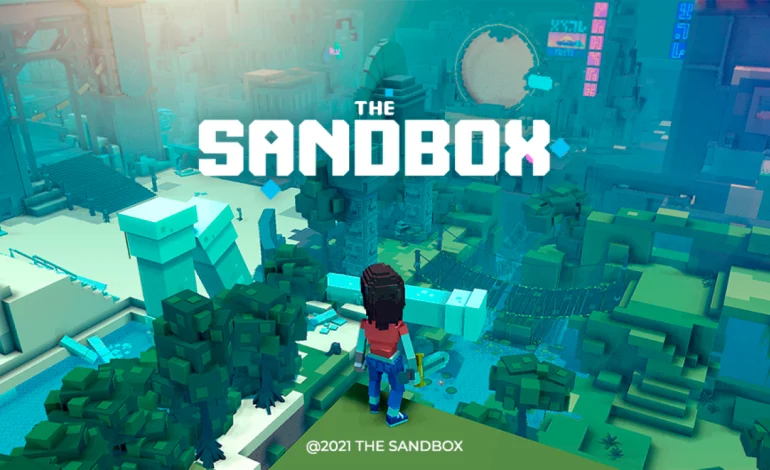How to Leverage the Power of the Metaverse for Marketing?

Since the dawn of time, humans have been hardwired to interact with each other in the physical world. For millennia, this was the only way to communicate and connect with other humans. In today’s digital age, we have become more accustomed to interacting with our fellow humans through the internet, whether through social media platforms like Facebook or Instagram or by sending an email or text message to family and friends. However, this has not eliminated our desire to connect with others through real-life interaction and human-to-human communication.
What is metaverse marketing?
In short, metaverse marketing is a great way to reach your audience by advertising in virtual spaces. By doing so, you get two important advantages: you can attract consumers who are actively looking for products similar to yours and you can reach consumers who may not be actively searching online but find themselves within a virtual space.
If someone likes something they see in your ads, there’s a good chance they’ll explore more of what that business has to offer. Users may even come away with a purchase! One company that effectively uses metaverse marketing is Harley Davidson. Its VR environments show off its motorcycles, as well as its lifestyle clothing line and accessories.
There are likely many more companies that could benefit from metaverse marketing tactics; if you feel like your products would be well-represented through 3D visuals, consider placing an ad in one of these virtual worlds.
Social Media in Virtual Worlds
Social media marketing is already a powerful marketing tool, and marketers are taking notice. Use social media in virtual worlds to reach users who would otherwise be difficult or impossible to reach.
For example, if you run a casual-dining restaurant chain with locations only in large cities, you’ll want to advertise outside of those cities. You could take out traditional ads in local papers, but your budget will be significantly limited because your audience is limited by city borders.
By advertising on Reddit, through an online forum that reaches every demographic and interest group you can also target people who aren’t close enough for typical advertisements but are still interested in eating at your restaurant.
This way, you don’t have to set up an entirely new type of business just to tap into a wider market; instead, you can expand across city lines while keeping things simple. If it works well in practice, metaverse studio marketing may prove even more valuable than its real-world counterparts.
Advertising in Virtual Worlds
The market itself is huge. The total value of all virtual items traded in Second Life was estimated to be around $500 million USD as of 2007, which represented its GDP. Allowing investors to make money by trading virtual items isn’t a novel idea. However, allowing them to do so with their own property, inside a virtual world they have total control over, might be.
Backers can create an avatar in Second Life and create one or more pieces of land they then sell-off (or keep) at will. They can then use that revenue from land sales as income and invest it in various things – including more real estate.
And because all transactions are digital, no transfer fees apply. It’s likely only a matter of time before some ambitious entrepreneur(s) figures out how to leverage social media networks in such a way that profits are made from interactions inside and outside of virtual worlds.
That could open up a whole new series of profit streams within these gaming communities, provided companies looking into such possibilities approach them strategically instead of carelessly jumping on the bandwagon first. After all, many people spend hours playing video games every day already. How many would spend even longer doing so if there were financial incentives involved? And even if those incentives aren’t entirely monetary right now?
Running Investments in Virtual Worlds
In a real-world economy, investments are an important part of determining your financial status. For example, if you have $1000 in your bank account, but invest that money in a certificate of deposit (CD) and earn 7% interest per year, you will have $1063 after one year. In virtual worlds, however, investing is something more complex.
Since currencies and items can be created by users in some worlds (e.g., Second Life), investors can use those items as assets instead of real-world currencies to make a profit off of their investments.
So how does it work? Let’s look at an example. Virtual world XYZ has its own native currency ($XYZ). The government maintains a fixed exchange rate between $XYZ and US dollars: 1 US dollar = 10 $XYZ. I hold 2,000 $XYZ which gives me about 20,000 US dollars worth since there is a 10:1 ratio between these two currencies.
Therefore I decided to take my 2,000 $XYZ over to Earth (another virtual world) where I exchange them for 200 Earth pounds ($EE). Now my overall worth has not changed; I still hold 20k USD worth of value across both platforms but they are represented differently now.
FAQ Most Frequently Ask Question
What does the metaverse mean for social media?
The metaverse is a virtual world in which users, businesses, and digital platforms can exist and interact. It includes everything from virtual social and gaming platforms (e.g. Roblox) to NFTs, a.k.a. non-fungible tokens (more on those later).
Can you sell products on metaverse?
The immersive and 3D features of metaverse unlock opportunities for consumer-facing brands. A brand can now interact with its users, showcase products, and advertise in the metaverse.
What does the metaverse mean for influencers?
The metaverse is a virtual reality space in which users can interact with each other. In simple terms, the metaverse is a parallel world, a physical representation of the web, accessible through a virtual reality headset, and which has its own independent economy, made possible by the blockchain.





